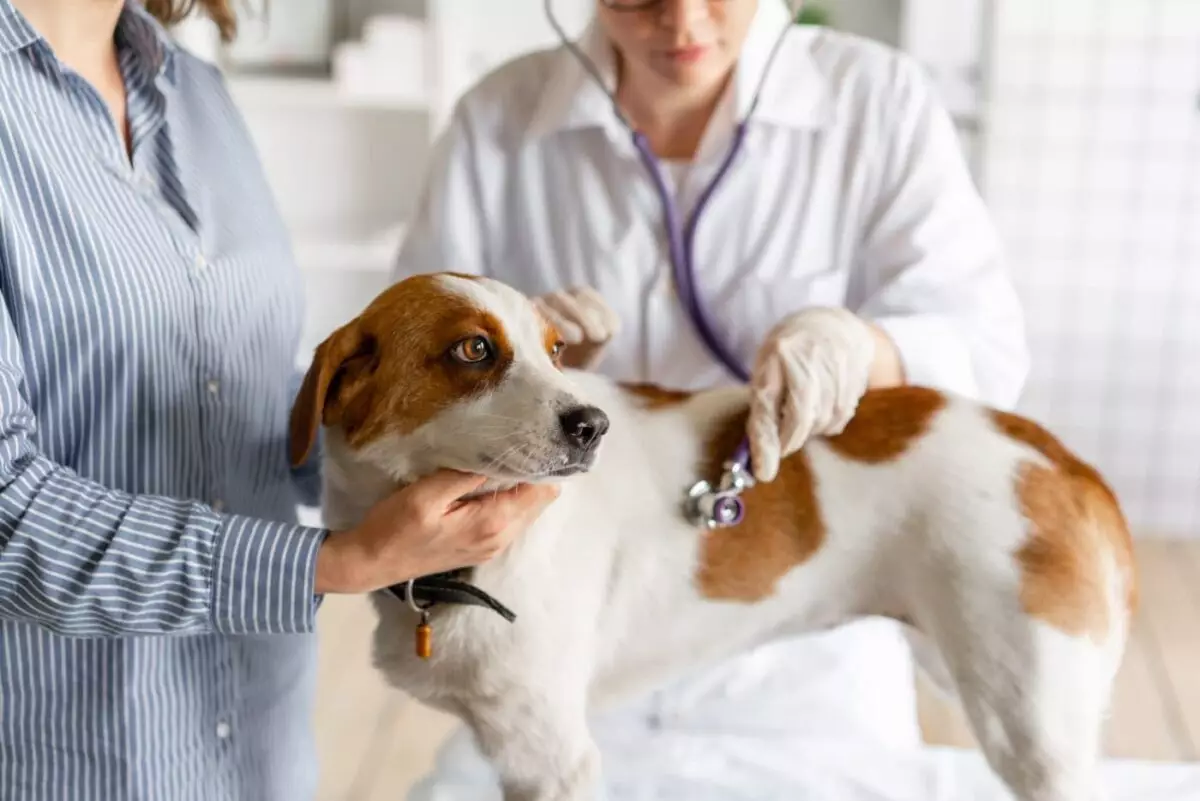As a responsible dog owner, caring for your furry friend’s health goes beyond simply providing food and shelter. It requires a proactive approach, which includes being well-informed and asking pertinent questions during veterinary visits. Whether you’re taking your new puppy for vaccinations or having your senior dog checked for age-related issues, understanding what to inquire about can greatly impact their quality of life and overall health.
Vaccinations are the first line of defense against numerous diseases that threaten your dog. However, determining which shots are necessary is not a one-size-fits-all approach. Factors such as your dog’s breed, age, lifestyle, and geographical location play critical roles in vaccination needs. For instance, pets in areas prone to specific diseases, like Lyme disease, may require additional vaccinations. During your vet appointment, make sure to discuss the vaccination schedule and any necessary booster shots. This proactive step not only protects your dog but also prevents the spread of infections to other pets and even humans, ensuring a healthier community.
Maintaining your dog’s weight is pivotal for their well-being. Obesity can lead to a myriad of health issues such as diabetes, cardiovascular problems, and musculoskeletal disorders. Conversely, being underweight may indicate malnutrition or underlying medical conditions. Regularly consulting with your vet about your dog’s weight status allows you to adjust their diet and exercise regimen appropriately, fostering a balanced lifestyle. Your veterinarian can advise on suitable food options and portion sizes tailored to your dog’s specific needs, ultimately enhancing their overall health and vitality.
Choosing the right diet can feel overwhelming, given the plethora of options on the market. A dog’s nutritional needs are influenced by various factors including age, size, breed, and pre-existing health conditions. Hence, a consultation with your vet can clarify whether your dog requires a high-protein, grain-free, or specialized diet. Engaging in discussions about your dog’s nutrition lays a foundational aspect of preventive healthcare, ensuring they are nourished properly for robust health and energy levels.
Regular veterinary visits are crucial for monitoring your dog’s health and catching issues early on. The frequency of visits can vary based on your dog’s health status—puppies and senior dogs might require more frequent evaluations, while healthy adults may only need annual check-ups. Don’t hesitate to inquire about how often your vet recommends bringing your dog in for thorough examinations, as consistent monitoring can lead to early detection of potentially life-threatening conditions.
Often underestimated, dental health is integral to your dog’s overall well-being. Poor dental hygiene can result in oral pain, tooth loss, and may even contribute to systemic health problems such as heart disease. It’s vital to discuss dental care with your vet, addressing any signs of oral distress, such as bad breath or difficulty eating. Your veterinarian can provide strategies for maintaining your dog’s dental hygiene, including proper brushing techniques and professional cleaning options.
Parasites like fleas, ticks, and heartworms can severely affect your dog’s health. Depending on your geographic location and your dog’s lifestyle, they may be more susceptible to certain types of parasites. Consult your veterinarian about effective prevention measures, ensuring that your dog remains healthy year-round. Your vet can recommend suitable products—be it topical treatments, oral medications, or collars—to fend off these troublesome invaders.
Every dog breed comes with its own set of genetic predispositions to various health issues. For example, large breeds may often face hip dysplasia, while small breeds may be more prone to spinal problems. Inquire with your vet about potential breed-specific health concerns. Understanding these predispositions allows you to be more vigilant and prepare in advance, proactively managing your dog’s health so that they live a comfortable and active life.
Dogs have an uncanny ability to mask pain, making it essential for owners to be observant. Changes in behavior, such as increased aggression or lethargy, may indicate discomfort stemming from conditions like arthritis or dental problems. Ask your vet to assess potential pain indicators through physical exams, as early recognition can lead to various management options that improve your dog’s quality of life.
Exercise is critical for your dog’s physical and emotional health; however, not all exercise regimens suit every dog. Choose activities that align with your dog’s breed, age, and health status. High-energy breeds typically require vigorous activity, while seniors or dogs with joint issues may benefit from gentler exercises like swimming. Partner with your vet to create a tailored exercise plan that keeps your dog engaged and healthy.
Dogs communicate their emotions and well-being through changes in behavior. Frequent aggression, anxiety, or lethargy might indicate underlying health problems. Engaging in discussions about observed behaviors allows your vet to offer insights into possible health concerns, providing options for behavioral management or necessary medical evaluations.
Allergies can significantly discomfort dogs, manifesting as skin irritations or digestive issues. If you notice your dog frequently scratching or suffering from recurrent ear infections, they may be allergic to something in their environment or diet. Your vet can guide you through identifying potential allergens and offer suggestions for relief, such as dietary changes or medication, thereby improving your dog’s quality of life.
As dogs age, their health requirements evolve. Older dogs become more susceptible to conditions such as arthritis and diabetes. Regular check-ups become even more crucial during this phase, as they allow for advanced monitoring and specialized care. Consulting with your veterinarian about the changes to expect as your dog ages fosters early intervention and preventive care, ensuring a comfortable and thriving senior dog.
Understanding and addressing your canine companion’s health requires effort but is ultimately rewarding. By being proactive and communicating effectively with your vet, you can safeguard your dog’s well-being throughout their life. From vaccinations and nutrition to behavior and exercise, the right questions and discussions lead to informed decisions that result in a happy and healthy dog.

